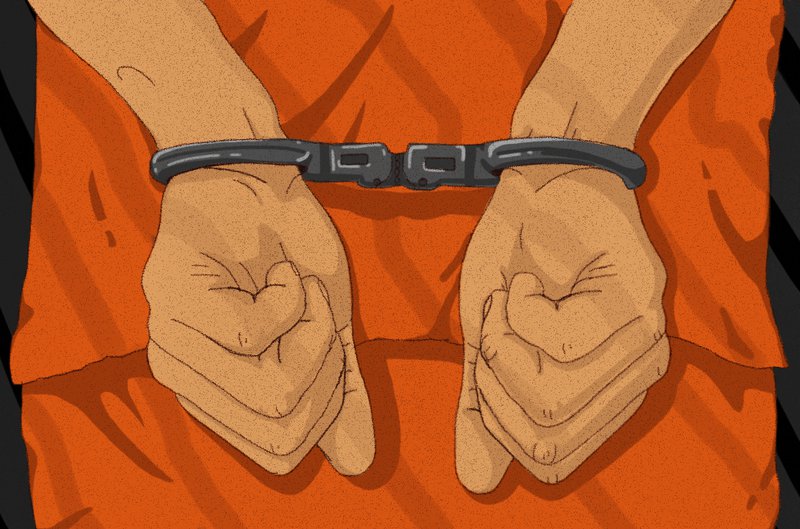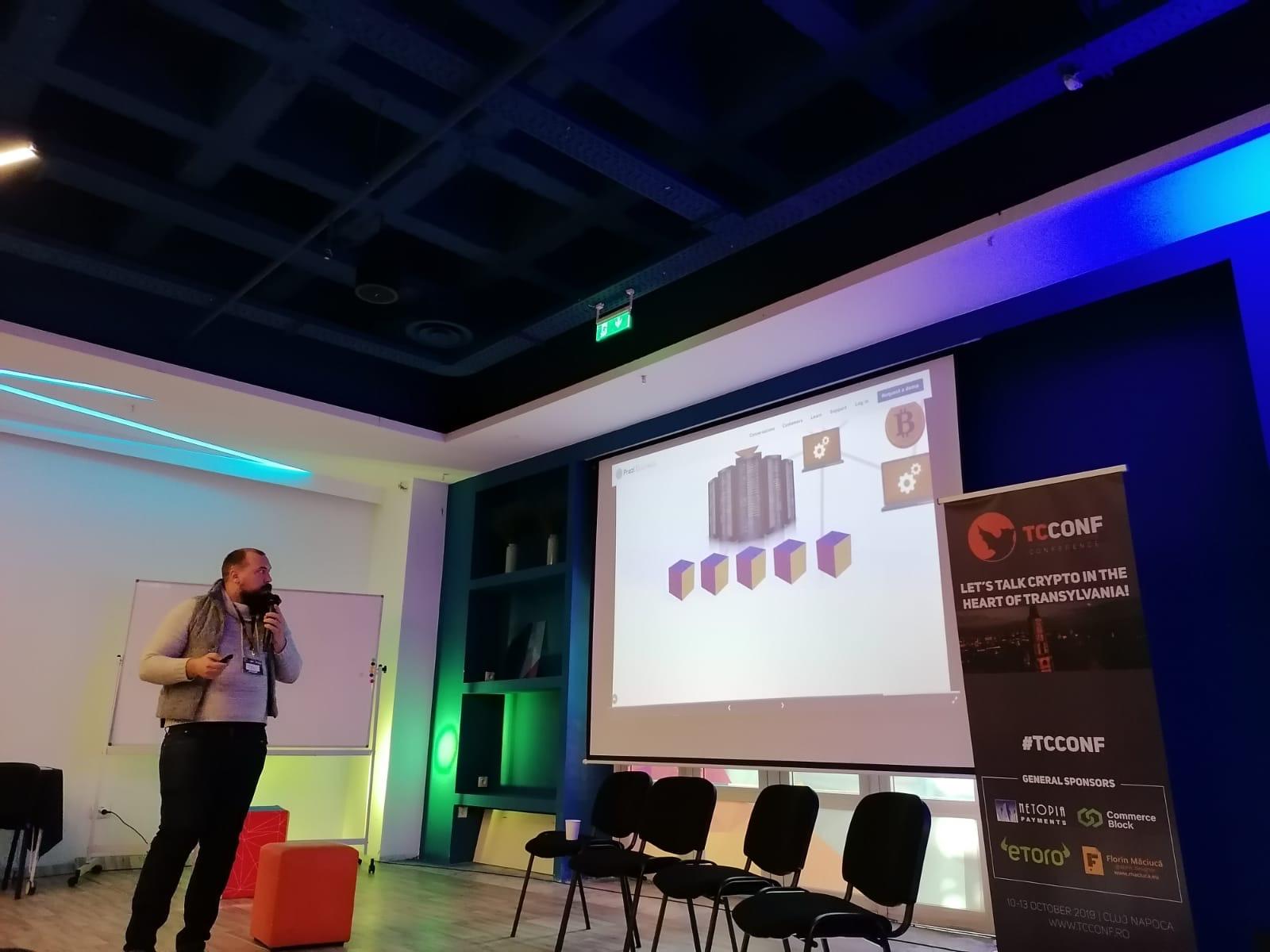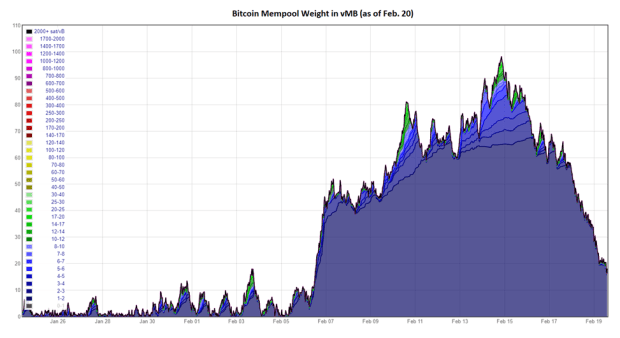What Elon Musk Got Wrong About The Bitcoin Block Size
Musk’s points were already addressed in the block size debate previously, and have been shown to detract from decentralization.
At “The B Word” conference earlier in the summer, there was a memorable panel event with Elon Musk, Cathy Wood and Jack Dorsey in which we were able to ascertain a little more (than we had often seen in tweets) about Elon Musk’s Bitcoin views. This article is an attempt to dissect and evaluate what he said around Bitcoin’s block size.
Firstly, let’s review what was said (starts at 18:15):
Steve Lee (panel host) – “Elon, I’m curious for your opinion on this – you mentioned, earlier about the importance of throughput, maybe some concerns around bitcoin. Do you think bitcoin can become peer-to-peer cash?”
Elon Musk – “Well, Bitcoin does have a fundamental scarcity limit at the base layer, that’s designed in; that doesn’t mean you can’t have some Layer 2 solution, like Lightning – I understand Lightning is doing well in some small countries.
“There is some question mark as to whether you’d need a money transmitter license, just a debate as to whether that is needed, that it is not open ledger; that’s a whole separate debate, of course.
“But Bitcoin by itself simply can’t scale to be the monetary system for the world at base layer. At a second layer, this is possible — it would depend on how that second layer is implemented.
“That’s part of why I think there may be some merit to, er, – something that may seem silly – like Dogecoin.. the three things I own outside from SpaceX and Tesla ..of any significance are bitcoin by far, and some eth and some doge. If the price of bitcoin goes down I lose money.. I might pump but I don’t dump. So it’s not a case of.. I don’t believe in getting the price high and selling or anything like that ..I would like to see bitcoin succeed.
“I think there’s some merit to – this is not a slam on Bitcoin – there is some merit to considering something that has a higher max transaction rate, and lower transaction cost – kind of seeing how far you can take a single layer network, where the exchanges act as a de facto second layer. I think you can probably take that further than people realise, and as bandwidth increases over time, latency decreases… Space X and Starlink are actually playing a role in this, and I think long term people probably have access to – worldwide access to – gigabit level connectivity at low latency, at low cost. And so then your base layer could do a lot of transactions if you take that into account.
“But as I said, Bitcoin with the Layer 2 system, I still think, could scale to do a vast number of transactions – the same goes for Ethereum.”
Steve Lee – “The question about the scaling of the Layer 1 — the concern from the past five years of debate in the Bitcoin community — is that that would sacrifice too much decentralisation, and hurt the censorship-resistant properties of bitcoin. I’m curious, what are your thoughts – are you sensitive to that, are you concerned about losing some of the special properties of bitcoin or another cryptocurrency by scaling at Layer 1?”
Elon Musk – “Yeah, with these things it’s helpful to use the physics tools of thinking; you know scale up, scale down, and see if it still makes sense. So if scaling up the transaction block doesn’t make sense, why don’t you scale it down? And have it be so somebody, you know, with a laptop from 2008 can still run a Bitcoin node. Why not slow it down. Oh. You want to slow it down? Well, maybe you’re at the wrong number then (laughs).”
Steve Lee – “There are actually members of the community who do want to slow it down!”
Elon Musk – “It’s silly. The reality is, the average person is not going to run a bitcoin node. And — Bitcoin — a lot of clever ideas, but these parameters were set in 2008, or 2009. There have been some improvements since then, but not a lot. You know, in 2008 there were still a non trivial number of people on modems (laughs)… nowadays it is quite common to get a 100mbs connection just for a house – some houses have gigabit connections… and that trend is obviously in the direction of higher bandwidth and lower latency. And if somebody else doesn’t do it, Starlink certainly will, so I have high confidence you would be able to maintain a decentralised finance system whilst still having a much bigger blockchain.. A.k.a. ASCIItext ledger, a hash ledger – you can make the hash ledger bigger, without harming decentralisation, as the average connectivity improves, obviously.”
Seasoned Bitcoiners will have rolled their eyes at these comments, with the block-size war (read the excellent book by Jonathan Bier of the same name) around 2015-17 still a recent memory. However, dissecting the comments remains key to an understanding of bitcoin’s unique value, versus other cryptocurrencies.
In some respects, Elon Musk has a point. If Bitcoin were developed for the first time today, it might not have been given the same parameters as it has had since its outset. Elon Musk is a visionary in other fields, and it’s only natural that a character like him might ask what might be, as opposed to accepting what is. However, before you go searching for the most viable alternative altcoin to back which has bigger blocks, it’s worth considering that Bitcoin probably could have been established at outset with half the current block size, or double the block size, and still been in a similar position as it is today. Much in the same vein, and a more trivial example – was 21 million coins the right number to choose?
How so? One anecdote I’d highlight to describe the position Bitcoin is in is the plug socket analogy used by Robert Breedlove (and no doubt others) to describe Bitcoin’s inaugural, first-mover lead over others. There may be better plug socket designs out there now, but entire nations are not going to shift designs for all sockets and appliances unless there is a 10x advantage to be derived from the new one.
The fact is, Bitcoin has a near-unassailable lead in terms of security of the network, nodes, users, and the surrounding ecosystem. I’d recommend a read of Nic Carter’s article on settlement assurance which much better articulates this.
At the heart of the argument also lies the whole concept of digital scarcity, upon which bitcoin derives most of its value. If any other cryptocurrency overcomes bitcoin, what is to stop the next incumbent from in turn overcoming it? This for me would cast doubts over the existence of any meaningful digital scarcity, and hence store of value potential, from any cryptocurrency at all. This could still turn out to be the case, but it doesn’t lead us to doge.
I’d disagree slightly with Elon Musk’s assertion that the average person is never going to run a Bitcoin node; as might Umbrel, who have just this week unveiled an “out of the box” solution for doing so. The market will no doubt drive this cost down significantly over time and make it easier still. As bitcoin adoption increases, it would be healthy to see far more nodes running than there are now. As fellow Bitcoin Magazine contributor Mitch Klee has tweeted, it’s not inconceivable that smartphones could have capacity to store the Bitcoin blockchain and run a node in future. Shinobi has pointed out in turn that there may be bottlenecks here – CPU / RAM / data plans, for example. But one thing’s for sure – with a fixed block size the number of nodes should increase over time, which is healthy and arguably necessary for the network.
In summary, whilst Elon Musk was right to point out that larger block sizes may appear more desirable now and into the future on paper, any advantage gained here versus Bitcoin in its current form is slender, and unlikely to be selected by the market compared to Bitcoin’s existing and wholly unique properties.
Does Elon Musk ultimately recognise this? On the basis that actions speak louder than words (and his actions so far this year have been to buy and hold quite a large amount of bitcoin), I wouldn’t rule it out. Time will tell.
This is a guest post by BitcoinActuary. Opinions expressed are entirely their own and do not necessarily reflect those of BTC Inc. or Bitcoin Magazine.









